|
In this Q&A, I look at how to set up a proofreading business, how to acquire clients and how to handle payments.
One of the blog's readers, Charlie, got in touch with several questions:
Phew! That’s a lot of questions so I’ll only be able to scratch the surface, but I’m confident I can point you in the right direction, Charlie. First things – going deeper Here are four resources that dig deeper into all your queries , though you’ll have to cough up a few quid for them!
They’ll tell you pretty much everything you need to know about starting out and keeping going. Might I also suggest you join the Chartered Institute of Editing and Proofreading (CIEP), the UK’s national editorial society? The forums provide a warm and supportive environment for old hands and newbies alike. How will clients pay me? A better question might be how would you like to be paid? For example, I accept cheques (reluctantly!), PayPal (convenient for international clients), and direct bank transfer (easy-peasy). Other options include Stripe, TransferWise and CurrencyFair. I send an invoice as soon as a project’s complete, but some of my colleagues prefer to do all their invoicing for the month in one fell swoop. It’s a matter of personal choice and what works for each business owner in terms of efficiency. You can download an invoice template from my Other Resources page. How do I register with HMRC and what do I need to tell them? Quite honestly, the easiest way to deal with HMRC is to give them a call. I found them incredibly helpful when I first started my editorial business. Believe me, they’ll put your mind at rest. Sue’s book (mentioned above) has lots of information about dealing with HMRC. My primary piece of advice is to keep a record of what you spend and what you earn in relation to your business. There’s an accounting template on the Editor Resources page that shows you what I record for each project. How do I keep track of the hours I spend working? I record my hours in the accounting template. That way, everything’s in one place. I keep track of time the old-fashioned way – with a pen and a piece of paper! Other colleagues use various time-tracking tools and widgets, e.g. Toggl. Keeping track of how much time you spend on a project is important for gauging how efficient you are. Bear in mind, though, that not all clients will be prepared to pay you for the hours you work. Rather, they’ll pay you for the hours they think the job should take you. This is often the case with publishers and packagers. When you’re in control of the setting the price of a project (e.g. with independent writers, students, businesses etc.), you’ll need to assess how long the project will take and how much you want to earn from it. This comes with experience; it’s likely you won’t hit the mark in the start-up phase of your proofreading business. Don’t fret about this, though. You’ll get better at estimating over time. And by tracking how long each project takes to complete, and what you earned, you’ll get a sense of what’s possible in an hour or per 1,000 words. How much should I charge? Take a look at the following articles here on The Editing Blog:
What you charge will be determined by your particular needs, your ability to access clients who’ll meet those needs, whom you’re working for, and what you’re doing. If you work for publishers and packagers, they’ll control the price – you’ll be a price-accepter. If you work for businesses, independent authors, academics, and students, you’ll offer a price in the hope that they’ll accept – you’ll be a price-setter. If the second option sounds a better financial option, bear in mind that, even if it is, it’s harder work! Publishers and packagers do all the client-acquisition work on your behalf, while acquiring clients for whom you’re a price setter means you need to actively promote your business on a regular basis so that you’re interesting and discoverable to clients across the platforms they’re using to find people like us (e.g. Google). How do I acquire assignments? My line on this is: when you set up your own business you’ll have two jobs:
I’ve shared all my experience of editorial business promotion in these resources:
What I’ll say here is that there’s no single way to go about it, not least because different client types use different platforms to find their proofreaders and editors.
For example, content marketing is not the most efficient way to go about acquiring publisher clients – honestly, just get on the phone or write a letter/email instead. If you want to work for independent authors, though, it’s one of the most powerful methods of being discoverable. Conversely, phone calls to publishers will reap results (if you make enough of them), but for indie authors this method will take you into Ghostbusters territory – who you gonna call?! My advice is to put yourself in your customer’s shoes and ask:
Can I use my prior career experience? Absolutely – it will be one of your unique selling points. For example, I’d worked for a social science publisher for many years prior to starting my business, This, along with my politics degree, helped to make me an interesting prospect for social science publishers with politics lists. Wordsmith Janet MacMillan is a former lawyer – now her client base includes legal publishers, legal students, academics and law firms. Both of us understand the language our respective disciplines, and that means we’re more likely to spot errors in related texts than someone with, say, a nursing background. My advice to new starters is: always specialize first in what you know. Later, if you wish, you can diversify, or transition to another specialism (I’m now a fiction copyeditor and proofreader). So, in the start-up phase, use your career experience to help you determine which core clients you’re going to target. Then think about how you'll communicate with them in a way that makes them want to consider you as their proofreader. Here are two resources to help you think about how to create a stand-out brand identity using a client-centric approach:
Do you accept volunteers or offer apprenticeships? I don’t, Charlie – sorry. I’m a one-woman show. That’s critical to my business model. My clients hire me and only me to work on their books. That doesn’t mean that mentoring programs aren’t a superb option. Time to think about training! I’d strongly recommend you do some professional proofreading training to prepare yourself for market. It’ll show you where your strengths are, and help you fix your weaknesses. Training has three core benefits:
TheChartered Institute of Editing and Proofreading (CIEP) and The Publishing Training Centre are my recommendations … purely because I have personal experience of their courses on which to base an opinion. There are other options available, though. The CIEP runs a mentoring programme, too, though you must have completed some initial training beforehand. Last things That’s it, Charlie – a whirlwind tour of how to set up a proofreading business! I hope you find the guidance useful. I realize there’s a lot to think about. If you decide to join the club, you’ll find a supportive community awaiting you, one that stretches well beyond the geographical boundaries of the UK. Good luck!
Louise Harnby is a line editor, copyeditor and proofreader who specializes in working with crime, mystery, suspense and thriller writers.
She is an Advanced Professional Member of the Chartered Institute of Editing and Proofreading (CIEP), a member of ACES, a Partner Member of The Alliance of Independent Authors (ALLi), and co-hosts The Editing Podcast. Visit her business website at Louise Harnby | Fiction Editor & Proofreader, say hello on Twitter at @LouiseHarnby, connect via Facebook and LinkedIn, and check out her books and courses.
24 Comments
31/5/2017 06:38:51 am
Great work, Louise, and thanks for the kind mention of my pen portraits article. My guest post on the SfEP blog has some tips for cracking on with your first proofreading job: http://blog.sfep.org.uk/10-tips-for-handling-your-first-proofreading-job/
Reply
Louise Harnby
31/5/2017 12:42:01 pm
Cheers, John. Thanks for your kind words. I'm really enjoying the opportunity to get personal with readers and answer their specific questions!
Reply
1/6/2017 04:00:30 am
Really good stuff, Louise. Using one's previous career or life experience really is the way to start, be that experience as a lawyer or a beekeeper. Thanks for the mention.
Reply
Louise Harnby
1/6/2017 06:35:52 pm
Hi, Janet! You're most welcome. I'm enjoying these Q&As and hope more new entrants to the field will take advantage of the opportunity!
Reply
Charlie
10/7/2017 03:53:44 pm
Dear Louise,
Reply
Louise Harnby
11/7/2017 10:43:10 am
Hi, Charlie! You are so welcome. I'm really glad you found the advice useful, and I wish you all the best with your new editorial business!
Reply
charlie
10/7/2017 03:59:48 pm
Dear Louise
Reply
Charlie
24/7/2017 01:08:51 pm
Do proofreaders need to open a new business banking account. I found this advised for those thinking of going self- employed? Are the banks acceptable of this esp newbies who may have hardly anything coming in initially? Thanks.
Reply
Charlie
24/7/2017 01:12:06 pm
Do we need to open a business banking account for freelance proofreading ? How has your experience been with the banks or
Reply
Louise Harnby
13/3/2018 12:02:49 am
Sorry, Charlie! I didn't get a notification. Read the financial advice in the Going Solo and Pricing a Project booklets I referenced in the article. They cover just this type of thing. There's no way of generalizing here because people do it all sorts of different ways depending on their circumstances, but Sue and Melanie have some excellent advice.
Reply
Quin Antony
12/3/2018 10:20:40 pm
Don't understand how you can publish this article when missing a word out in your first sentence. Poor..
Reply
Louise Harnby
12/3/2018 11:41:55 pm
Thank you for pointing out my error. I’ve fixed it.
Reply
Stevie
5/8/2018 10:29:39 pm
Thank you for this Louise - extremely helpful and has definitely pushed me in the right direction with the setting up of my new venture. All the best!
Reply
Louise Harnby
6/8/2018 11:40:57 am
Thanks, Stevie. Delighted to hear that it's been useful. Good luck!
Reply
Wendy
28/3/2019 01:26:24 pm
Hi Louise,
Reply
Louise Harnby
28/3/2019 02:50:26 pm
Glad you found it helpful, Wendy. Good luck with your business journey!
Reply
Laura Jacks
12/1/2020 07:37:27 pm
Just wondering how much you can roughly charge per hour when freelance? Thanks
Reply
Louise Harnby
13/1/2020 09:57:33 am
You own your own business so you can charge whatever you like, However, some of the factors that determine what you charge could be: what kind of editorial service you're providing, how long the job will take, what you need to earn in order to make your business viable, and how much a particular client is willing to pay. Check out some of the other articles in the Money Matters archive of the blog for more guidance.
Reply
21/5/2020 01:37:19 pm
Hello Louise Harnby my name is John White
Reply
Louise Harnby
21/5/2020 02:09:51 pm
Hello, John. If you're asking how much the training courses cost, I recommend you visit the providers' sites; the payment options will be available there. Different courses take different lengths of time to complete, but comprehensive courses that make a professional proofreader fit for market take months to complete.
Reply
Jennifer
11/7/2020 11:22:45 am
Hi there,
Reply
Louise Harnby
12/7/2020 09:08:17 pm
It's entirely your choice, Jennifer. I know many people who specialize in proofreading. I recommend you spend some time thinking about which client types you want to work with, what their requirements are, which media they work in, and which courses will fit best.
Reply
Rebecca
23/8/2020 12:15:37 am
Hi,
Reply
Louise Harnby
23/8/2020 01:38:01 am
Hi, Rebecca. I recommend you take some of the steps I suggest in this blog post. Or check out the other things I've written - see the Starting Out and Training archives in the sidebar to the right. There are also links to resources for editors (and editors to be) in the footer of every page in this site (see the right-hand box). Hope that helps!
Reply
Leave a Reply. |
BLOG ALERTSIf you'd like me to email you when a new blog post is available, sign up for blog alerts!
TESTIMONIALSDare Rogers'Louise uses her expertise to hone a story until it's razor sharp, while still allowing the author’s voice to remain dominant.'Jeff Carson'I wholeheartedly recommend her services ... Just don’t hire her when I need her.'J B Turner'Sincere thanks for a beautiful and elegant piece of work. First class.'Ayshe Gemedzhy'What makes her stand out and shine is her ability to immerse herself in your story.'Salt Publishing'A million thanks – your mark-up is perfect, as always.'CATEGORIES
All
ARCHIVES
July 2024
|
|
|
|


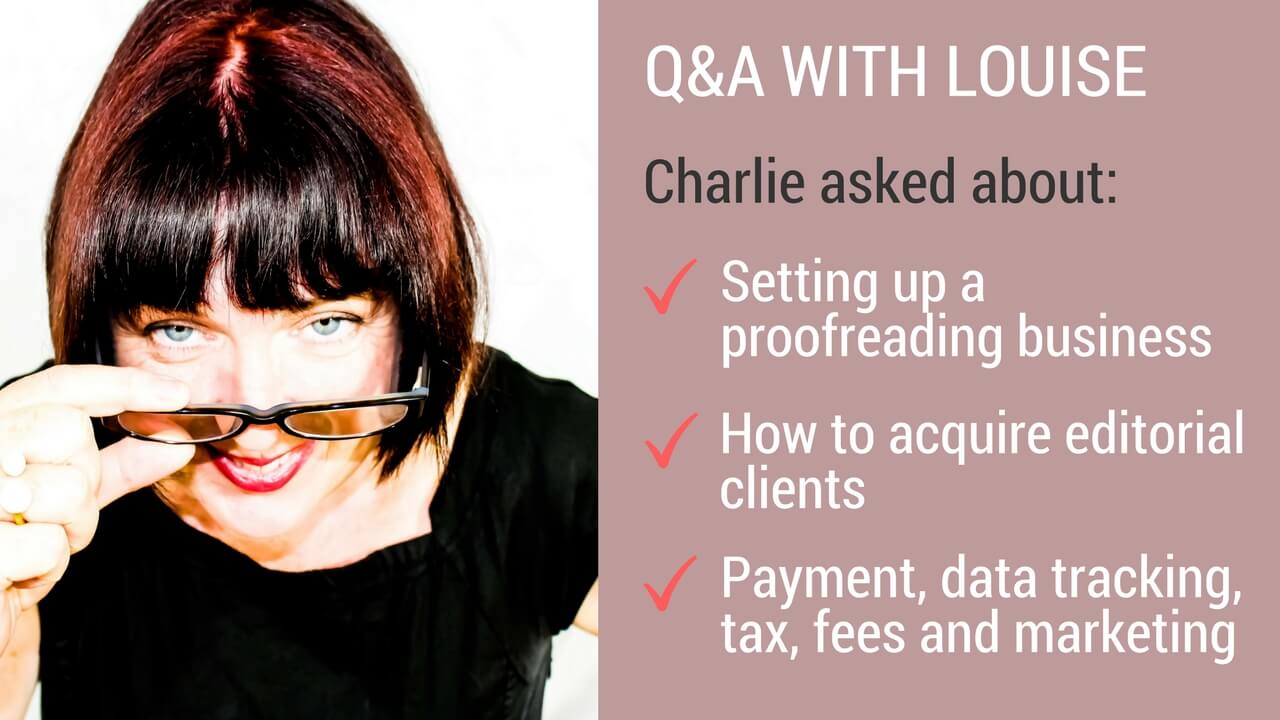
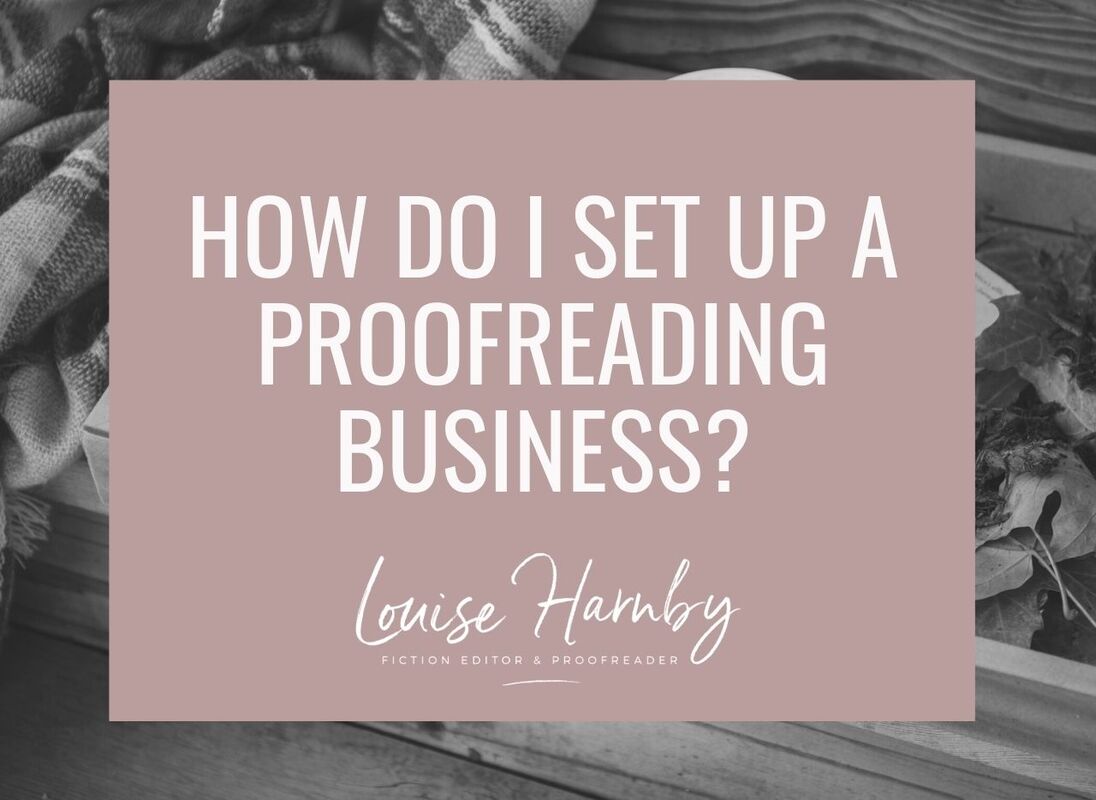
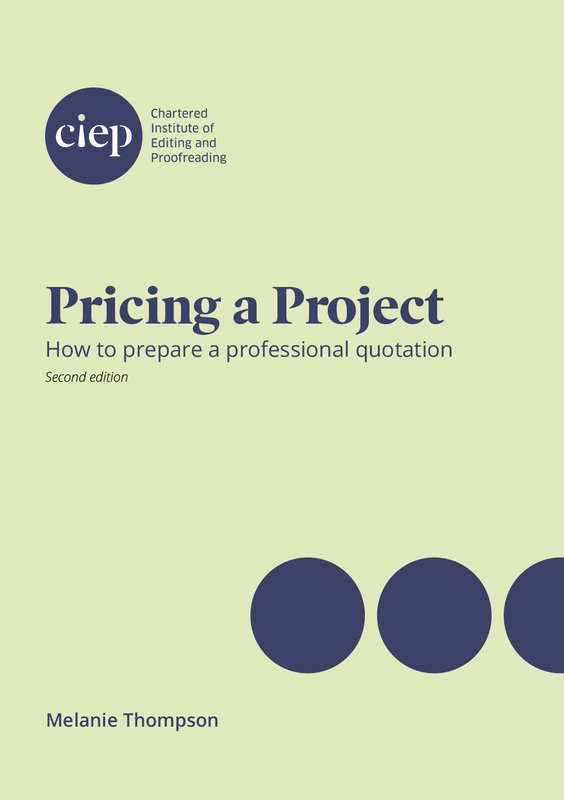
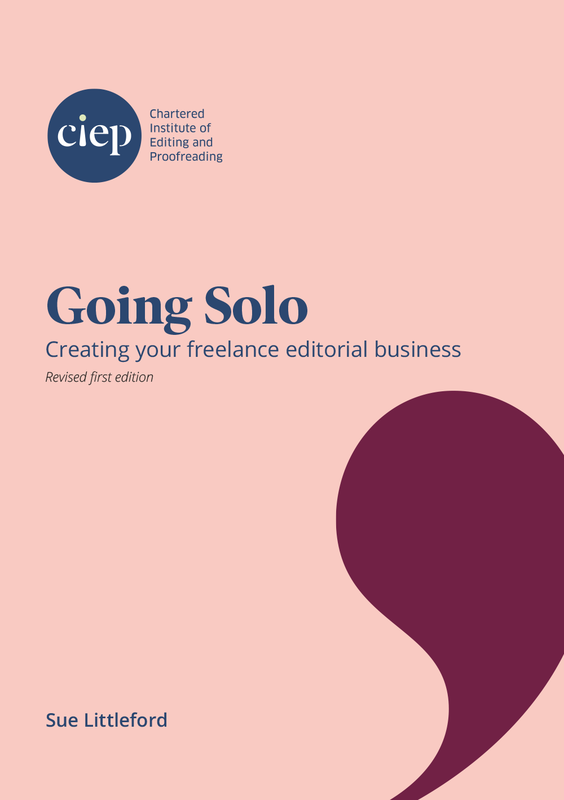
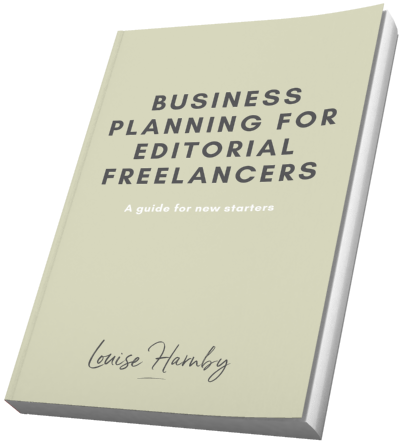
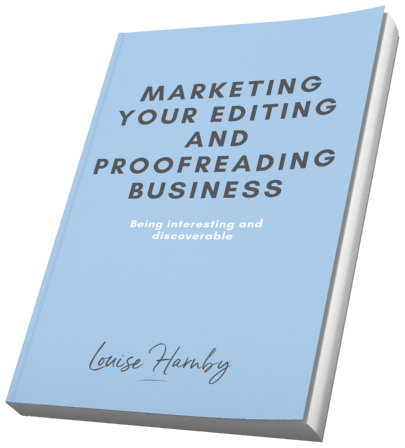
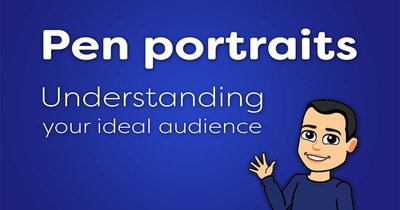
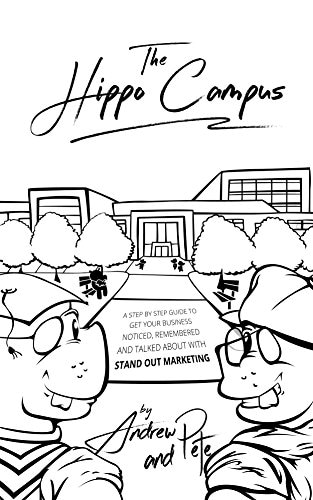













 RSS Feed
RSS Feed





